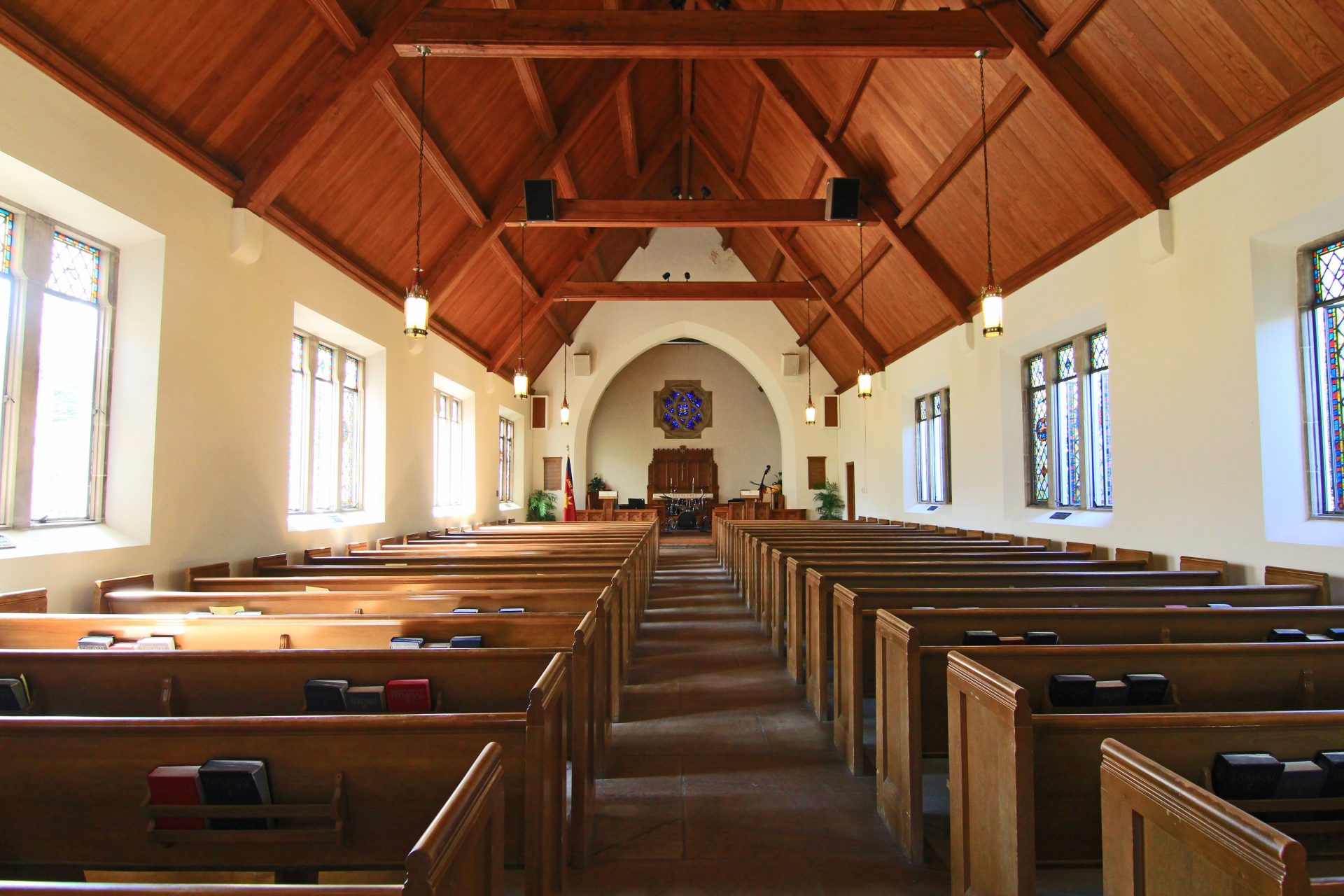Planning a spiritual retreat can be a rewarding opportunity for all participants, and these tips can help make your retreat a success
As a retreat leader, you have the chance to help people deepen their faith, change their lives and build lasting bonds of friendship. But whether your group has less than a dozen participants or includes hundreds of people, planning a successful spiritual retreat takes significant effort.
Choosing the right center is one of the most important steps in the process. The U.S. has a wide array of options, from sites affiliated with spiritual communities such as Roman Catholic monks to centers whose sole business is catering to religious groups. These questions can help you refine your search:
How far is your group willing to travel?
The word retreat implies getting away from ordinary routines, and many people find that leaving their immediate area is a valuable part of spiritual renewal. Some retreat centers are located in spectacularly beautiful places, such as Ghost Ranch (ghostranch.org), which is set amid the red rock canyons and high desert of New Mexico, and Holden Village (holdenvillage.org), which is located in a remote wilderness area near Chelan, Washington, and is accessible only by ferry. However, such sites require a considerable amount of effort and time to reach and may not be feasible for your group. But virtually every corner of the U.S. has a spiritual retreat center within a one- to two-hour drive. Short-stay options close to major cities include Laurelville (laurelville.org) near Pittsburgh and Angeles Crest Christian Camp (angelescrest.com) near Los Angeles.
What goals does your group have for a spiritual retreat?
Churches schedule retreats for a wide variety of reasons, from enriching the spiritual lives of their members to building support for an upcoming building campaign or nurturing and educating new leadership. Identifying your purpose early in the process will help you decide what resources and accommodations you require. Do you need spaces primarily for discussion groups, lectures, individual reflection or for group worship? Look care-fully at the design of the retreat center to make sure it has spaces that can accommodate the different activities. If at all possible, do an on-site visit.
How much planning do you want to do?
Retreat centers such as America’s Keswick (americaskeswick.org) in Whiting, New Jersey, can provide you with virtually everything you need for a successful spiritual retreat. Other locations rent their facilities and provide meals but let you take care of the rest of the planning, such as Cross Roads Retreat and Conference Center (crossroadsretreat.org) in Caldwell, Texas.
Who will lead the spiritual retreat?
Some institutions, including the Bay View Association (bayviewassociation.org), a Chautauqua-style organization in Petoskey, Michigan, affiliated with the United Methodist Church, bring in nationally known authors and theologians to conduct programs. Many centers can also provide suggestions of local speakers who can lead sessions, or you can ask your own pastor or congregational leader to direct a retreat. And religious communities such as the monks at Saint John’s Abbey (saintjohnsabbey.org) in Collegeville, Minnesota, or the Dominican sisters who live at Sinsinawa Mound Center (sinsinawa.org) in Sinsinawa, Wisconsin, have many years of experience in directing retreats.
What type of lodging and catering needs does your group have?
“Youth retreats usually do fine with camp-style food and dorm accommodations, but adult groups often want more elaborate meals and rooms that are either private or shared with two people at most,” says Andy McClung, owner of Oasis Christian Center (oasischristiancenter.com) in Franklin, Kentucky, and author of The Ultimate Retreat Planning Guide. “At our center, we have both dorms and private lodge rooms so that we can accommodate a range of preferences, and we also serve food that’s more like you’d get in a restaurant than a typical camp. We’ve found that food is a very important part of a successful retreat.”
Do you want an outdoor component to your spiritual retreat?
The natural world can be as inspiring as the grandest cathedral. If your group loves outdoor recreation, try Deer Run Camps & Retreats (deerrun.camp) near Nashville, Tennessee, or Look Up Lodge Christian Camp (lookuplodge.com) in Travelers Rest, South Carolina. Activities such as zip-lining, hiking, ropes courses, climbing walls, swimming and canoeing can build ties between participants and provide a balance to the more reflective parts of a retreat.
Do you want a non-denominational retreat center or one affiliated with your national church?
All the major denominations have centers, including the Episcopal Church’s Kanuga (kanuga.org) in Hendersonville, North Carolina, and the Butman Methodist Camp & Retreat Center (butmancamp.org) in Merkel, Texas. Other centers, such as Gull Lake Ministries (gulllake.org) near Kalamazoo, Michigan, are Christian but non-denominational. And still others welcome groups from all spiritual paths, including Genesis Spiritual Life & Conference Center (genesisspiritualcenter.org) in Westfield, Massachusetts.
Throughout the planning process, try to keep your focus on your overall mission. “As a retreat leader, it’s easy to get so caught up in the planning that you lose your enjoyment of the process and forget what’s most important,” says McClung. “Pray for guidance and always keep in mind that the ultimate reason for a retreat is to draw closer to God. That’s true for you as well as for the people who will attend the program you’re planning.”
Tips for a successful spiritual retreat
Get Help. Early in the retreat-planning process, pull together a team that can help you. You might want to have someone in charge of areas that include administrative details, worship, decorations, food, music, recreational activities, publicity, finances and fundraising. An added benefit is that people will be more invested in the retreat if they help out along the way.
Develop a program. Some retreats have a lot of structure, while others are more open-ended. Whatever the schedule, allow time for breaks and private reflections. And don’t forget to plan for the vagaries of the weather—your sunrise worship service is not going to work well if it’s raining.
The Rev. Dr. Catherine Quehl-Engel, chaplain of Cornell College in Mount Vernon, Iowa, has planned many retreats for students, faculty and community members. She suggests building in time each day for reflection. “Invite people to reflect on what experiences stood out for them that day as meaningful,” she recommends. “Where and how did they experience the Holy? What might the day’s outward journey have to say regarding their inner journey? These can be questions to consider in a group or used as reflection tools for individuals. I also encourage participants to keep a journal to enhance their experiences, insights and growth while on retreat.”
Promote your event. A simple website with information about your spiritual retreat, or a designated page on your church’s site, makes it easy to promote your retreat on social media. In addition, put up posters and flyers, make announcements in church and spread the word through as many channels as possible. And keep in mind that the best advertisement is always word of mouth. Encourage planning team members, and those who have already registered, to reach out with a personal invitation to others.
To discover a wealth of faith-based travel itineraries and expert advice visit the Affinity section of Leisure Group Travel. And to stay up to date on group travel planning new, be sure to subscribe for FREE to Leisure Group Travel.
By Lori Erickson
Lori Erickson is a travel writer with a specialty in holy sites. She is the author of Holy Rover: Journeys in Search of Mystery, Miracles, and God, a memoir structured around trips to a dozen holy sites around the world.






